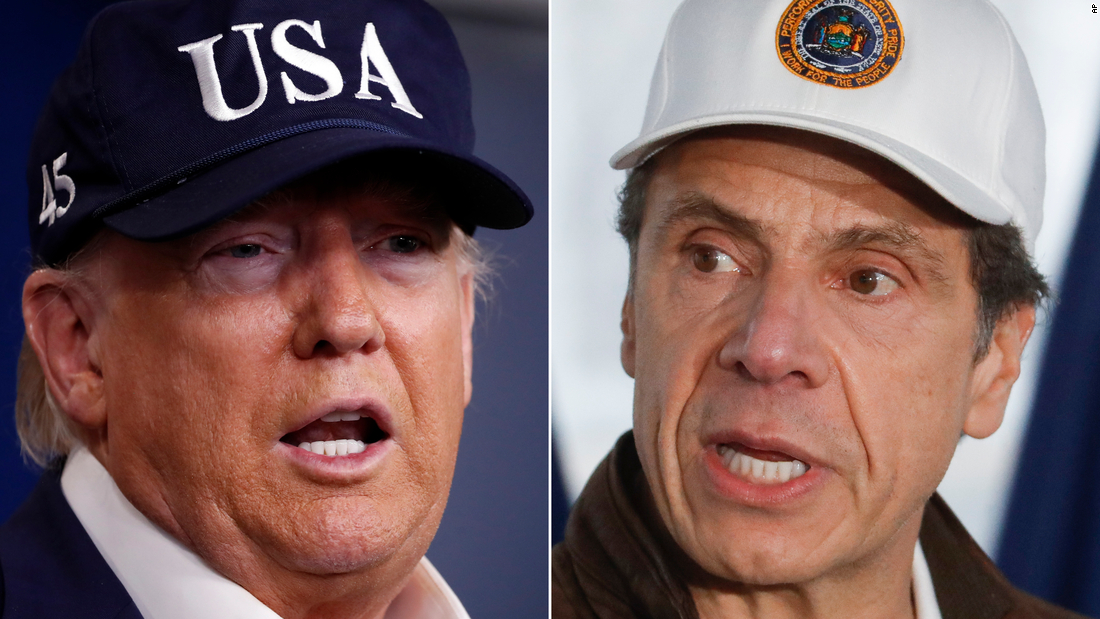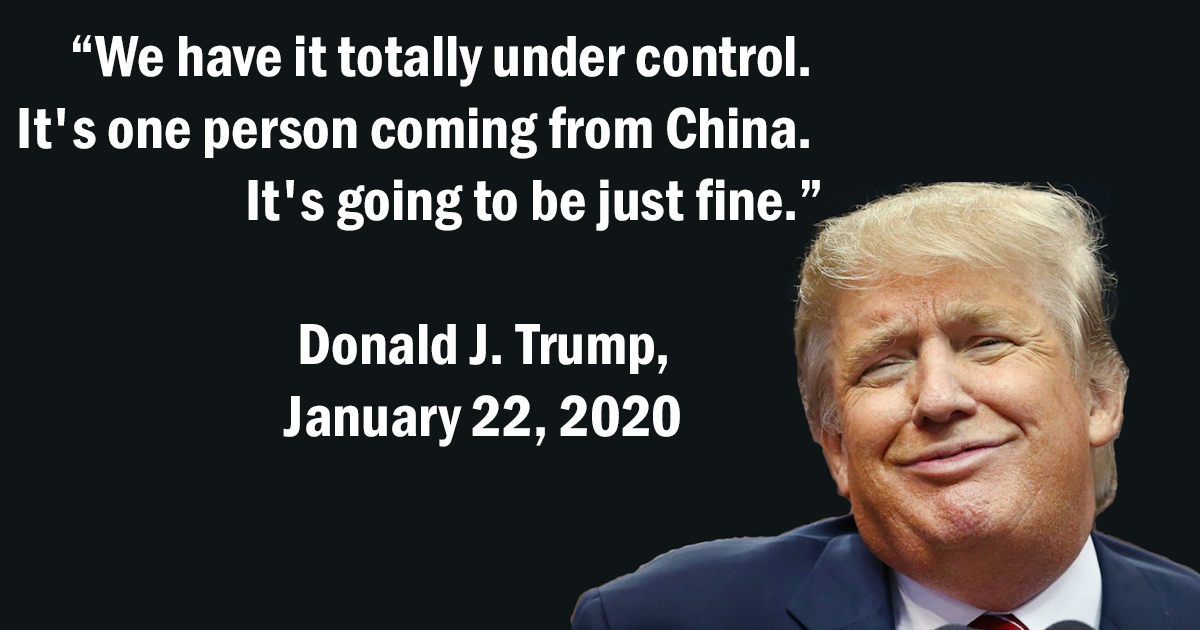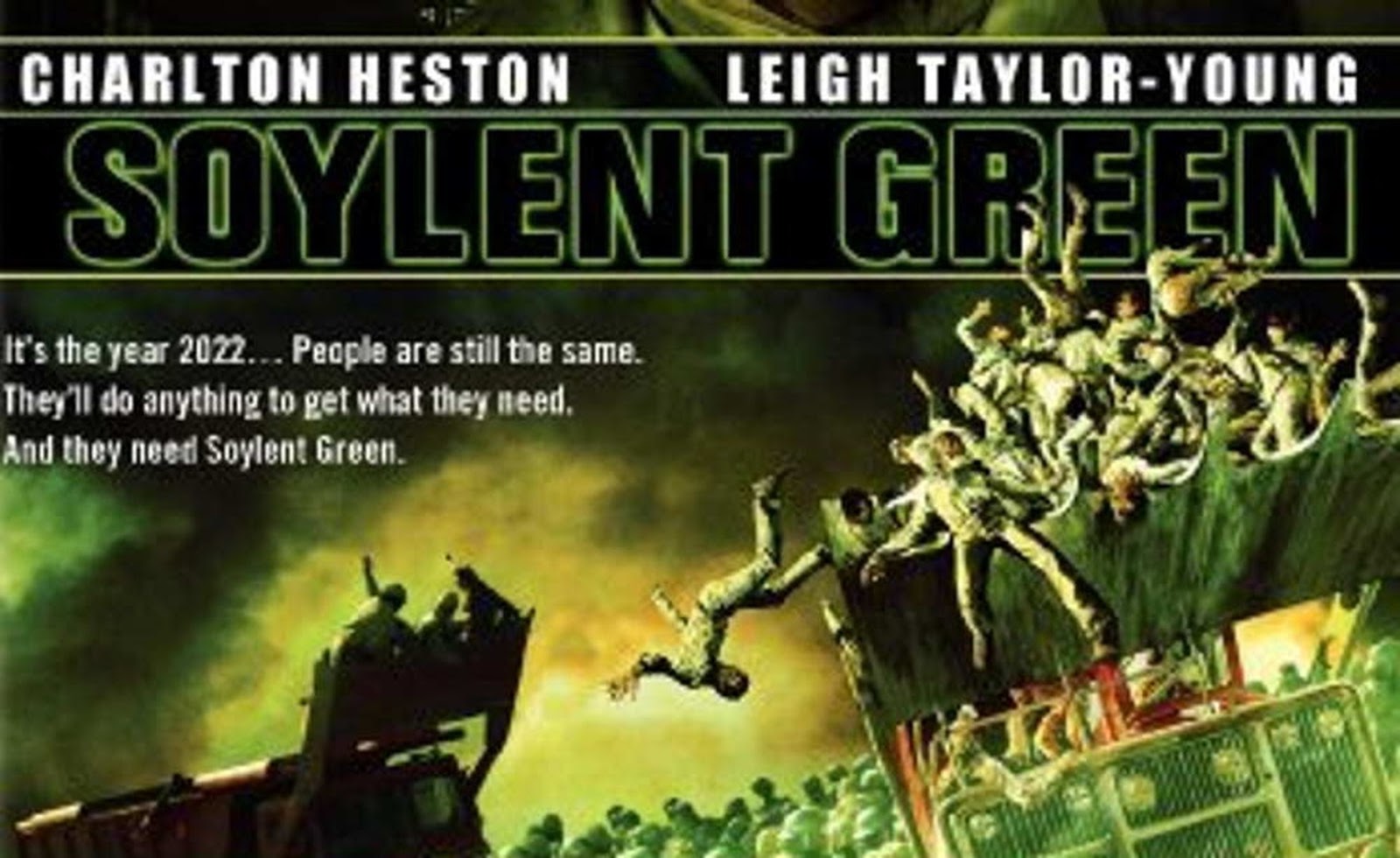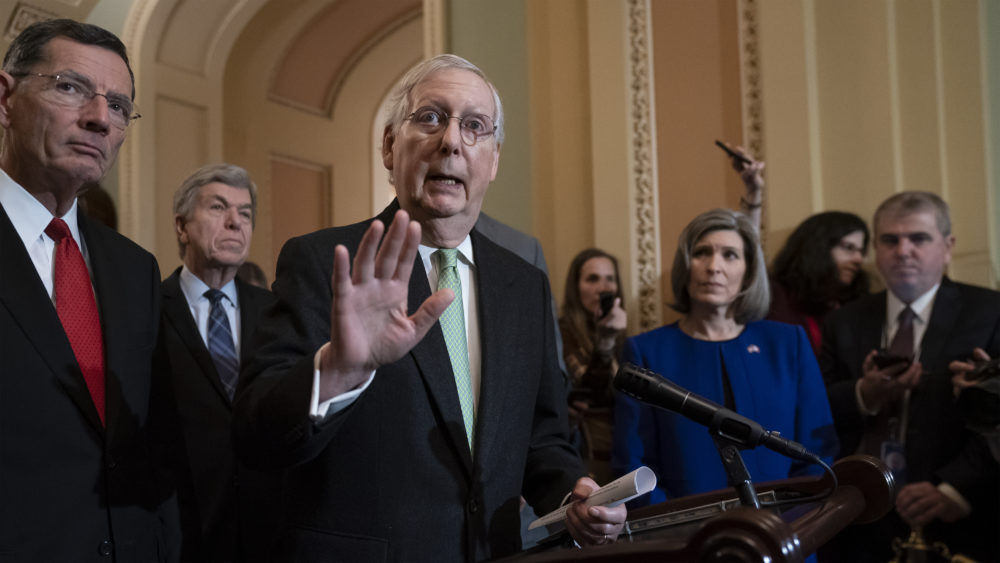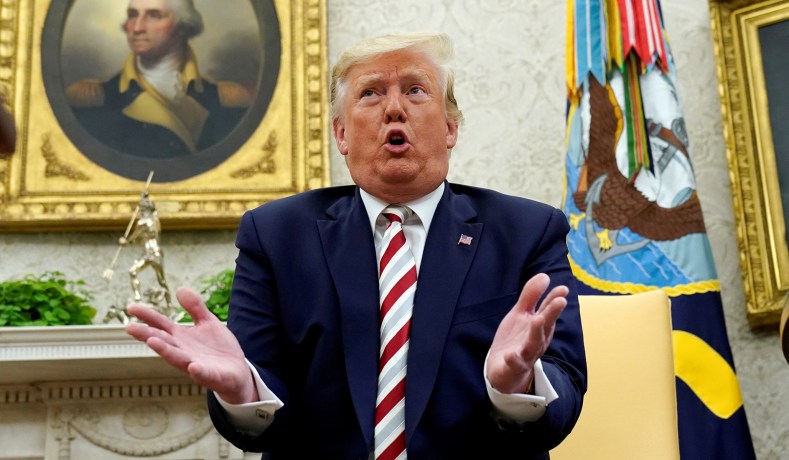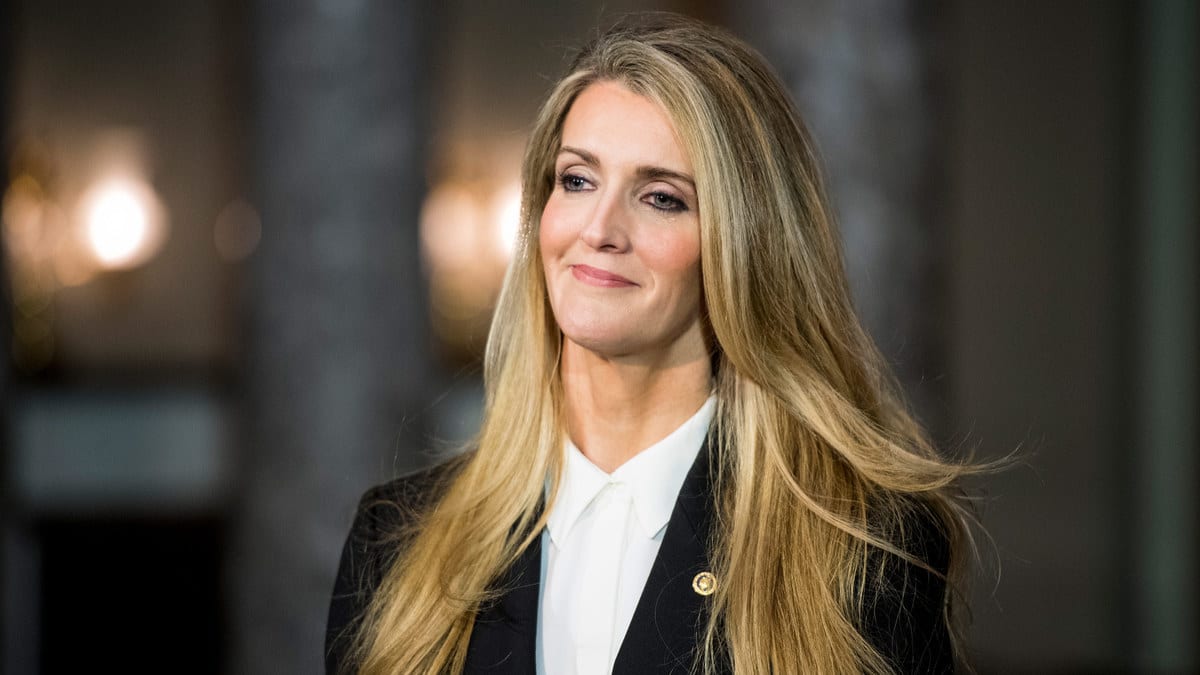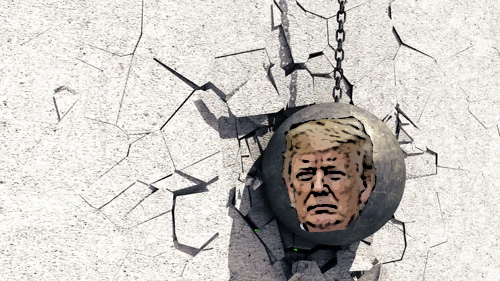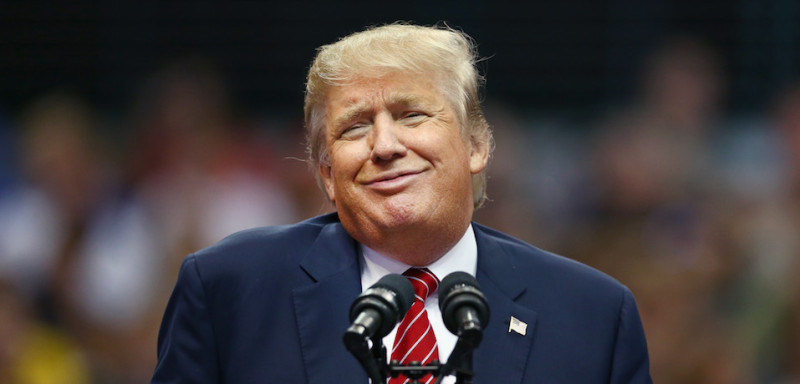I’ve been struggling to write something about the failures of the Trump administration to address the pandemic, and it’s just too overwhelming. There have been other incompetent presidents, but I don’t believe we’ve ever faced a serious crisis with such a total failure of leadership. So I’m scrapping what I’ve been working on and starting over.
Today Trump tweeted this:
Mary B is GM CEO Mary Barra. “Invoke ‘P'” may refer to the Defense Production Act, which Trump likes to toss around as a kind of threat.
And then he tweeted this:
Because, you know, an automobile plant can be retooled to make medical ventilators at the drop of a hat. What are they waiting for (she said, sarcastically)? But Trump claimed a week ago that GM, Ford, and “many other companies” were already making ventilators, which turned out not to be true.
But here’s more to this ventilator story. Yesterday the New York Times reported on a potential deal with GM that was dropped by the White House.
The White House had been preparing to reveal on Wednesday a joint venture between General Motors and Ventec Life Systems that would allow for the production of as many as 80,000 desperately needed ventilators to respond to an escalating pandemic when word suddenly came down that the announcement was off.
The decision to cancel the announcement, government officials say, came after the Federal Emergency Management Agency said it needed more time to assess whether the estimated cost was prohibitive. That price tag was more than $1 billion, with several hundred million dollars to be paid upfront to General Motors to retool a car parts plant in Kokomo, Ind., where the ventilators would be made with Ventec’s technology.
I suspect it would take a boatload of money to retool a car parts plant to produce something entirely different. And capitalism says you’re supposed to make a profit.
Oh, and the New York Times article says that the FEMA effort to get more ventilators is being directed by Jared Kushner, which probably has a lot to do with why it’s not happening.
A General Motors spokesman said that “Project V,” as the ventilator program is known, was moving very fast, and a company official said “there’s no issue with retooling.” …
… The only thing missing was clarity from the government about how many ventilators they needed — and who would be paid to build them.
Those are common questions in any manufacturing venture, I would think.
The initial projection, one senior administration official said, was that after three weeks of preparation it could produce an initial run of 20,000 ventilators, or about two-thirds of what Gov. Andrew Cuomo of New York recently said his state alone needed to cover the influx of coronavirus patients expected in two weeks, if not sooner.
That number then shrank to 7,500 ventilators in the initial run, or maybe 5,000, an apparent recognition that auto transmissions and ventilators had very little in common. Those numbers are in flux and so are the Trump administration’s because the White House cannot decide how many ventilators it wants.
So the real fault here is that Mr. Ivanka is in way over his head and doesn’t really understand how any of this manufacturing and production stuff works. And his father in law is even more clueless. Anyway, Josh Marshall wrote,
While Americans die in escalating numbers and hospitals around the country announce plans to deny care to those already seriously ill the White House is negotiating with various businesses and joint ventures over producing ventilators. Today a deal with GM and Ventec was put on hold because the White House was unsure whether it was paying too much or whether they’d be purchasing too many and left with extra ventilators there was no need for. The White House point man on this critical life and death effort is Jared Kushner. They’re trying to cut the best deal while people die. It will make you furious and it may make you cry.
Indeed.
New York, especially New York City, is being slammed by the pandemic. This is from three days ago:
Gov. Andrew Cuomo sounded his loudest alarm yet on New York’s coronavirus crisis Tuesday, warning the curve was showing no signs of flattening out and was in fact rising faster and more dangerously than projected. He said last week that peak infection was 45 days out; now, he says, the state may see it in two weeks.
It looks like the wave will be bigger, and crash harder, than expected. “We have exhausted every option available to us,” Cuomo said Tuesday, declaring with unprecedented urgency that New York needs help now — and far more than it has gotten to date. …
… The federal government has sent supplies, including masks and gowns and another 400 ventilators that arrived in New York City this week. Mayor Bill de Blasio has said the city needs 15,000 — the state needs double that, on top of the 7,000 it already has procured. The governor’s frustration boiled over Tuesday.
“What are we going to do with 400 ventilators when we need 30,000? You pick the 26,000 people who are going to die because you only sent 400 ventilators,” Cuomo said.
And how did our president respond?
President Trump pointed the finger right back, saying Cuomo declined to order 15,000 ventilators in 2015. He quickly shifted tone, adding, “I’m not blaming him or anything else … but he shouldn’t be talking about us. He supposed to be buying his own ventilators … we’re going to help.”
I have not been able to find out why Cuomo was supposed to order 15,000 ventilators in 2015. Right now state governors are bidding against each other, and FEMA, for needed supplies. It’s a mess. But I’ll come back to that.
Last night, no doubt pissed at Cuomo and frustrated by not having some great deal to brag about, Trump went on Hannity’s show and declared New York doesn’t need that many ventilators, anyway.
“I have a feeling that a lot of the numbers that are being in said in some areas are just bigger than they’re going to be. I don’t believe you need 40,000 or 30,000 ventilators,” Trump said. “You know, you go into major hospitals, sometimes they’ll have two ventilators, and now, all of the sudden they’re saying, ‘Can we order 30,000 ventilators?’”
Because, you know, Andy Cuomo just asked for all those ventilators to mess with Trump. He doesn’t really need them. Right? But today Trump is rage tweeting that GM had better crank out those 40,000 ventilators, fast.
Obviously, Trump is furious that the pandemic is messing with his glorious administration and making him look bad. And he’s flailing and shrieking, and by now the entire White House staff must be ready for straightjackets and a few hours in a rubber room.
Trump’s next move in the ventilator spat was to insist New York already had ventilators.
Cuomo responded that the ventilators he requested were in addition to what he already had. As it says above somewhere New York has a stockpile of 7,000 ventilators procured from various sources, plus it had received 400 from the federal government. They are not being distributed now because the peak hasn’t hit yet.
“We’re gathering them in the stockpile so that when we need them they will be there,” Mr. Cuomo said of the ventilators. “We don’t need them today because we’re not at capacity today.”
But that was enough for the Fox News and New York Post propagandists to declare that Cuomo can just distribute the ventilators he already has and doesn’t need any more. This is the plan for covering up Trump’s inability to actually get anything done, such as make a deal with GM to manufacture some ventilators.
Unfortunately, it’s not just New York. Hospitals all over the country are reporting shortages of all sorts of vital equipment, including ventilators. There have been myriad news stories about this over the past several days.
Please see Critical Supply Shortages — The Need for Ventilators and Personal Protective Equipment during the Covid-19 Pandemic in the New England Journal of Medicine. Executive summary: Hospitals all over the country don’t have enough equipment. They all need a lot more equipment. They will need a lot more equipment over the next few months. What they have now is not nearly enough. Without enough ventilators, people who could have been saved will die. Without enough personal protective equipment, medical personnel will die.
This is what has been happening in Italy and elsewhere, and it’s about to happen here. And instead of addressing the problem, Trump goes on Fox News to make excuses. See also Greg Sargent, Trump just raged at Michigan’s governor. Here’s what’s really behind it.
Right now there is breaking news that Trump has actually used the Defense Production Act to compel General Motors to make the damn ventilators.
President Trump has invoked the Defense Production Act to make General Motors manufacture respirators to help fight the coronavirus outbreak. The announcement was made hours after Trump complained in tweets that GM and Ford were not doing enough to help produce the medical equipment during the pandemic.
“Our negotiations with GM regarding its ability to supply ventilators have been productive, but our fight against the virus is too urgent to allow the give-and-take of the contracting process to continue to run its normal course,” Trump said in a statement. “GM was wasting time. Today’s action will help ensure the quick production of ventilators that will save American lives.”
GM was not wasting time. Trump was wasting time. And this should have been done days, if not weeks, ago. I will post more details when I have any.
